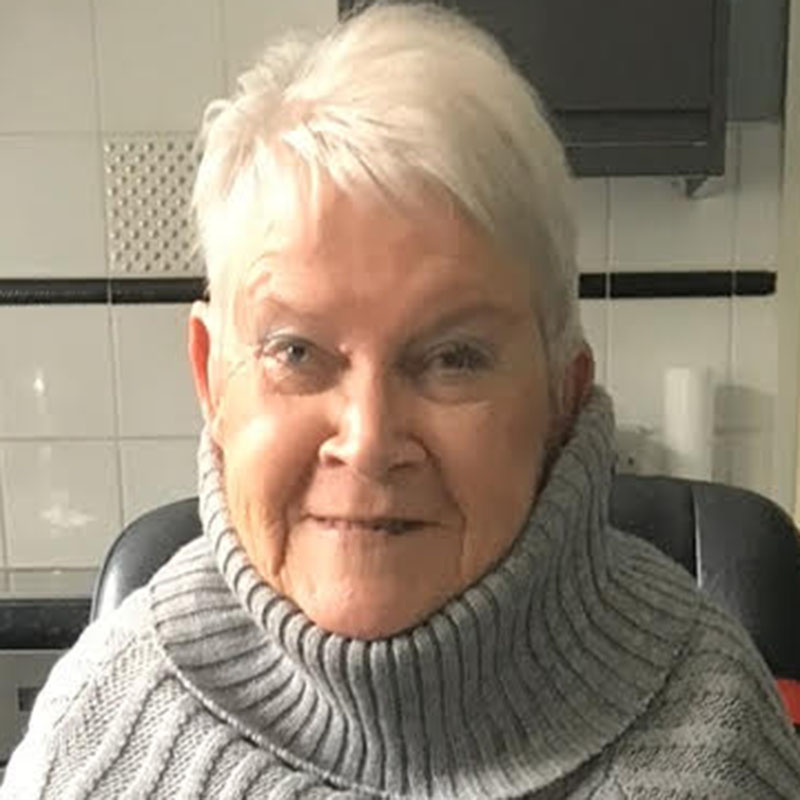This is a commentary includes contributions by guest authors. The views and opinions of the authors may not always represent those of the Centre for Care.
Why is the take-up of direct payments so low?
Direct payments are a way to pay people’s social care budget directly to them or to their families, and are a key element of independent living. They have been legal in the UK since 1996 and according to the Care Act 2014 are the government’s ‘preferred mechanism for personalised care and support’. But figures show that take-up of direct payments remains low and falling – only a quarter of eligible people in England receive their support in this way.
As part of the Transitions that Matter series of commentaries, Catherine Needham talked to the Centre for Care Voice Forum and the University of Birmingham Lived Experience Panel about why so few people continue to transition to direct payments. The Forum and the Panel are made up of people with direct experience of social care.
Barriers
Many members of the Voice Forum and the Lived Experience Panel are strong advocates for direct payments as the best way to support choice and control. Several of them receive their support through a direct payment, and use this money to employ Personal Assistants. But they are well aware of all of the reasons why direct payment take-up remains so low. Key reasons include:
- People don’t know about them (‘if people are new to social care, they haven’t heard about direct payments, and language barriers can make this problem worse’)
- Social workers don’t encourage them (‘it’s a lot more hard work for social workers than just setting up a care package’)
- If you do get a direct payment, it is hard work to manage all the administration (‘people aren’t told that they can have help with wages, pensions etc’)
- Recruiting a Personal Assistant is extremely difficult (‘it’s hard to know where to advertise and the hours can be unattractive compared to working in a care home’)
- The money doesn’t go up annually (‘inflation means the amount of the payment is shrinking, but people don’t want to ask for a review in case it goes down or gets taken away’)
Given these barriers, Robert Walker from the Centre for Care Voice Forum explains why direct payments didn’t feel like the right option for him:

I became disabled in 1988 with a mental health condition I was unable to deal with my affairs effectively. This is when I was assessed by Social Services including my housing needs and support plan.
In April 1997 I recall Direct Payments being referred to by my support worker I had become isolated due to restrictive finances, I was unable to enjoy recreational activities and holidays. Was this just an alternative way of delivering care I wondered, did I fit into the specific subsection as referred to in my local authority guidelines?
Being constantly put under scrutiny by the DWP including medical assessments I was becoming rather jaded, I explained this to my Social Worker who failed to make enquiries about my eligibility. I got the impression resources were stretched he never got back to me.
When my support worker eventually spoke with the local authority, I got the impression that Direct Payments were restrictive and being policed by omnipotents, progress in my claim was being halted so I gave up.
My disability worsened with the onset of two cancers, my daily functioning was severely affected. I lost my appetite to claim Direct Payments because the process was too daunting for me. I did not want to be stigmatised by having to rely on additional benefits because I am a proud man.
Having reached pensionable age I think a reinvigoration of Direct Payments is required and that it must be properly resourced, is it fit for purpose due to such ambiguity?
Other members of the Voice Forum talked about how they had taken up direct payments but recognised the ongoing barriers facing other people:

I’ve received a direct payment for nearly 15 years. Initially it was daunting, I had to develop documents such as employment contracts and various policies and procedures. I also had to find a local company who would manage the payroll for me and I had to take out specific insurance for employing Personal Assistants (PAs), and so on.
So, there is a clear need for increased support for people to set up these systems and also to provide ongoing support for managing PAs and managing budgets in general. And the concern of people in having to do these things is certainly one reason for the low take up. There is also the issue of having a financial assessment and having to pay a contribution towards the budget.
For many people these issues are just more hassle than it’s worth!
These same issues were evident to Anne Pridmore from the Voice Forum who has had a direct payment for many years and runs a business supporting other people to manage their direct payments:

There are three reasons why take up of direct payments is so low. First, local authorities don’t encourage people to go onto direct payments. I’m not sure why – maybe because they don’t want us to be in charge of our own lives. Plus local authority charges are going up. You are supposed to make a contribution from your benefits. A lot of people can’t afford that and say they would rather go without support.
Second, some disabled people find the idea of a direct payment daunting. I employ six people, but I have no HR department to help me with that, it’s all me. If you’ve had no experience of managing money then it’s frightening to be given some money and told to get on with it.
Third, it’s hard to recruit PAs. When people have a small number of hours of support, that’s not much of a job for someone. They would have to look after several clients a day to make that financially worthwhile and that may not be practical. We need to make the PA role more attractive. There needs to be more PA training and that training needs to be given by disabled people.
There are practical suggestions here for how direct payment take-up might be increased – more support around the administration of the budget and in recruitment and training of PAs. Involving disabled people’s organisations in this is key. Some disabled people have had direct payments for several decades, and have amassed substantial expertise in what works and how to make them more accessible. Local authorities need to be drawing on this expertise (in appropriately funded ways) to really achieve the potential of direct payments.
Our research
Our research in the Centre for Care is also looking at ways to support direct payment take-up. Jilesh Kunnumpurath’s PhD research is looking at how to support take-up of direct payments by older people from Black and minority ethnic communities. Catherine Needham and Emily Burn’s work on care ecosystems, is looking at how to make the broader care system more supportive of direct payments (for example, by exposing the financial disincentives for local authorities and providers that get in the way of making it the ‘preferred mechanism’ for care payments).
It is important to acknowledge that the current financial pressures on local authorities risk making direct payments more marginal. Anne Pridmore highlights fears among disabled people that the achievements of the disability rights movement are being unpicked in the context of local government austerity and bankruptcy:
We achieved so much through the independent living movement through the 1980s and 1990s. In the last 13 years a lot of that has been rolled back. People are being told they can’t have support at home, they have to go into residential care and that’s terrifying.
An example of this is the recent proposal by Bristol City Council to move disabled people into residential care if it offers ‘best value’ compared to living at home. This proposal has now been abandoned. However it highlights how precarious are the rights of disabled people, and how much the threat of a return to forced institutionalisation remains real.
It is vital to ensure that key pillars of independent living – like direct payments – are protected, celebrated and expanded.
About the author
Catherine Needham is Professor of Public Policy and Public Management at the Health Services Management Centre, University of Birmingham. Her research focuses on adult social care, including personalisation, co-production, personal budgets and care markets. She has published a wide range of articles, chapters and books for academic and practitioner audiences. Catherine led the Care in the Four Nations work package within the ESRC Sustainable Care team. She is now leading research on care systems as part of the ESRC Centre for Care and is also a member of IMPACT, the UK centre for evidence implementation in adult social care. She tweets as @DrCNeedham.

